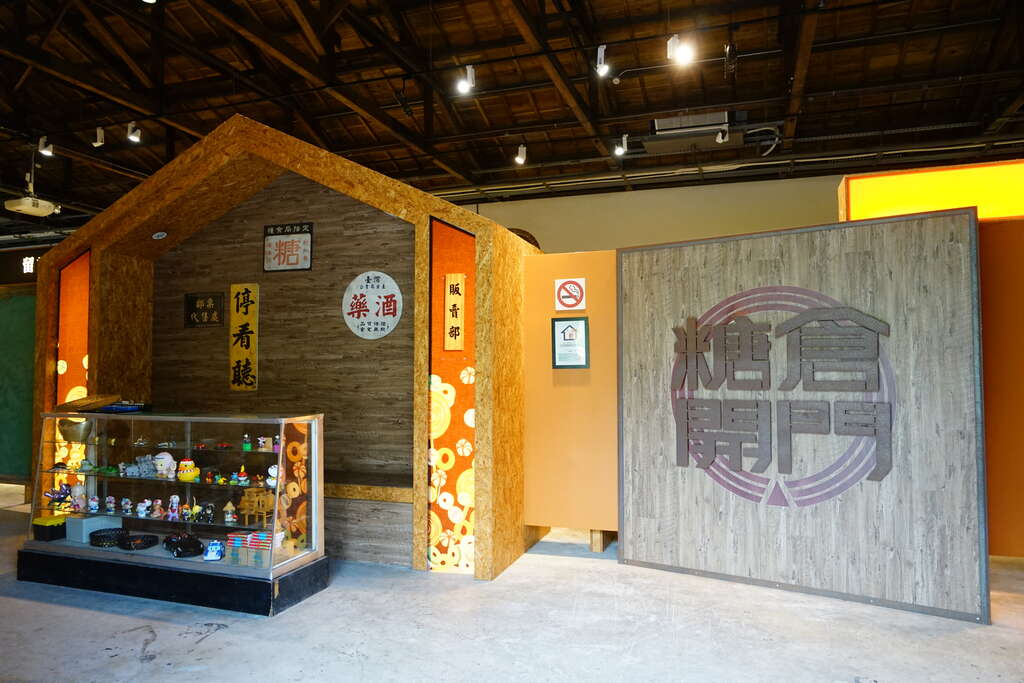Taipei Sugar Factory Cultural Park Introduction
Historical Introduction: In 1764 (the 29th year of the Qianlong era), sugar production began to be recorded in northern Changhua, Taiwan. The area near Dali Street in Wanhua was characterized by private sugar refineries during the Qing Dynasty, with widespread cultivation of sugarcane. After the establishment of the "Taipei Sugar Company" during the Japanese rule, the landscape underwent significant changes, transforming into an industrial zone dominated by sugar factories and transportation tracks, where local residents largely depended on the sugar industry or related sectors for their livelihood. Following the restoration of Taiwan, urban planning continued to utilize the concept of mixed land use from the Japanese era, designating the vicinity as an industrial area. Shortly after being taken over by the Taiwan Sugar Corporation, sugar production ceased, and warehouses were established; however, related industries such as chemicals, food processing, and paper production still thrived around the residual capacity of the sugar industry. In the 1940s, the predecessor of the China Times, "The News," took over the Taiwan Sugar warehouses to launch a newspaper, attracting the concentration of nearby printing industries. From the 1960s to the 1970s, the convenience of rail transport drew in clothing wholesalers. Throughout Taipei's historical development, the area around Dali Street has always played a productive role. However, in recent years, changes in the industrial environment and urban development moving eastward have led to the gradual decline of the once-thriving "Huisaiwei" living circle and industrial landscape. The actual quality of the environment has also diminished due to population concentration and dense construction, with public facilities struggling to meet residents' needs, pushing it to the margins of urban development. Residents in the Dali Street community fought against the establishment of a nursing home, advocated for a neighborhood park, and preserved the northernmost sugar production relics in Taiwan, specifically the buildings of the Taipei Sugar Factory. The historic warehouse, made of stacked red bricks, features arches, trapezoidal columns, and large-span structures, which are its distinctive characteristics. On September 23, 2003, it was officially designated as a city monument No. 106. The vision for the future includes three city-designated historic sugar warehouses (A, B, C), located on Dali Street in Wanhua District, encompassing approximately 1.092 hectares, including C1 district (Gong-Er Park) and C2 district. In the C1 area, aside from the historic site, the other areas currently comprise a park and underground parking. After many years of effort, the preservation of the historic sugar warehouse and the acquisition of park land at no cost were achieved, and the Cultural Bureau continues to seek central government funding for repairs. Since the opening of the Taipei Sugar Cultural Park, the three city-designated historic sugar warehouses have been planned as the Sugar Culture Exhibition Hall (Warehouse A), Wanhua Xiaoshow Theater (Warehouse B), and rental space provided for private entities by the Taiwan Sugar Corporation (Warehouse C). Among them, the Sugar Culture Exhibition Hall, operated by the Bureau, features a permanent exhibition called "Opening the Sugar Warehouse," focusing on the development of the sugar industry in northern Taiwan, utilizing participatory workshops for collective creativity, including historical data collection, oral history interviews, and creative workshops to aid artists in completing their works. Community resources have been effectively utilized by recruiting a volunteer team to assist with exhibition services and guided tours, turning the park into an important local education venue. The reuse plan for the sugar warehouse includes the "Opening the Sugar Warehouse" cultural exhibition at Warehouse A, highlighting the significance of preserving the sugar warehouse, introducing the history of the Taipei Sugar Factory and the industrial development trajectory of the western city. It will also feature a sugar art classroom open for use as a space for cultural and diverse community activities, managed by the Bureau and free for public visits. Warehouse B, occupied by the Xiaoshow Theater, will offer self-organized programs and professional curation while allowing performing arts teams to rent and use the space to cultivate local audiences in Wanhua and collaborate with schools and social organizations to promote performing arts; it will also link domestic and international networks through resources such as the Mengjia International Dance Festival and the Xiaoshow Theater Art Residency Program, showcasing a rich and diverse performing arts ecosystem within the Taipei Sugar Cultural Park. (Source: Taipei City Cultural Bureau)













